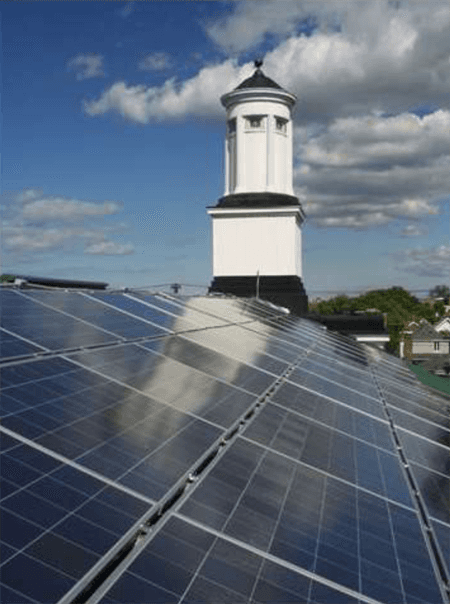About Us

...to live with respect in creation...
We didn’t start off trying to be green. We started off with a budget deficit. It started with our pipe organ. Some of us thought that turning down the heat in the Sanctuary during the week might help the deficit, but there was the pipe organ to consider. Someone said someone had said the pipe organ had to be at 65 degrees all winter to be preserved. Our elders observed that we used to have a coal boiler, and they didn’t remember shovelling enough coal to keep the Church at 65 degrees all winter. The younger people suggested that if the organ died, they preferred guitars and drums and keyboards anyway. We needed to talk things out, and we needed to do something.
At first, we just lowered the temperature on the old thermostat. But somebody, frustrated that the Church was not as warm as they were expecting, shoved that little lever all the way over, and it was 84 degrees in the Church the next morning. We knew that wasn’t good for the organ. So we talked some more, and wondered if investing a little over a hundred dollars in a 7-day electronic set back thermostat would be worth it. We decided we could try one, and set it up to be warm when people were going to be there, and cool when people were not going to be there.
Why keep our Church warm when no one is there—especially overnight, when it is colder and takes more fuel? By the time a year had passed, the heat bill was $1000 less. The organ was fine. Six years later, the organ is still fine, better, perhaps, for the leathers not getting all dried out from the heat in the winter.
Our Congregational culture was changing. We didn’t know we were getting greener, but we knew something was happening. People were beginning to let us know when they needed to be warm in the Church, and asking if someone would show them how to set the thermostat. If someone forgets to turn the heat down when they leave, the thermostats (we have four now) remember and do it for us. In one way, we were going backwards, trying to recreate the days when if you wanted to be warm at Laidlaw, it involved shovelling coal; in another way, we were embracing new technology.
We got thinking one day about the pilot lights on the big kitchen stove. We talked it over, and decided to turn them off until someone needed to use the stove (that saves $250 in gas each year), and the water heater is turned down for the summer, and changing the furnace filters helps make the furnaces more efficient. Of course, all this takes organization. We learned that people are especially willing to help when they’re doing something that’s smart, and makes good sense, and reduces the amount of begging for money they have to do to keep their Church going.
When we needed to save even more money, we decided we would eat breakfast together on a Saturday morning, and work together to clean and maintain our Church. People like eating together, and working together, and soon there were more people with good ideas about things we could do to make things better. Our culture was changing again; instead of it being somebody’s responsibility to keep the Church clean and operating efficiently, it became everybody’s responsibility—and we began to hold each other accountable; if someone forgot to shut off a light or change a filter, or clean up, we could help each other, instead of complaining about each other.

